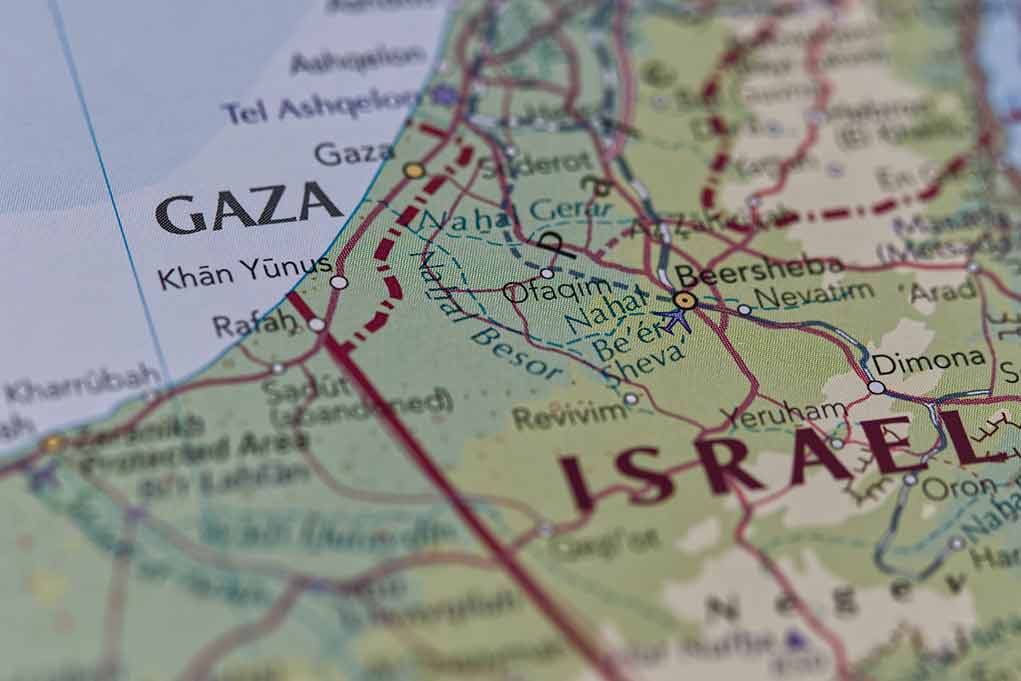
Israel takes bold action to strengthen its West Bank presence, announcing plans for 22 new Jewish settlements that will reshape the region’s political landscape and firmly entrench Israeli control despite international outcry.
Key Takeaways
- Israel has announced its largest settlement expansion since the 1993 Oslo accords, authorizing 22 new settlements in the West Bank including 12 previously unauthorized outposts
- Defense Minister Israel Katz called the move a “strategic” decision that “strengthens Israel’s hold” on the territory and “constitutes a crushing response to Palestinian terrorism”
- The international community, including Britain and Jordan, condemned the decision as illegal and a deliberate obstacle to Palestinian statehood
- The expansion takes place while over 500,000 Israeli settlers already live in more than 100 settlements across the West Bank, home to over three million Palestinians under military rule
- The announcement comes ahead of an international conference led by France and Saudi Arabia aimed at reviving the two-state solution process
Israel’s Strategic Settlement Expansion
In a decisive move affirming sovereignty over disputed territories, Israel has announced plans to establish 22 Jewish settlements in the West Bank. The comprehensive plan includes legalizing 12 existing unauthorized outposts, developing nine entirely new settlements, and reclassifying a neighborhood as a separate settlement. This represents the most extensive settlement expansion initiative since the 1993 Oslo peace accords, according to both Israeli officials and settlement watchdog groups. The move comes as part of a broader strategy to strengthen Israel’s permanent presence in territories it considers historically and strategically vital.
“This strengthens our hold on Judea and Samaria and anchors our historical right in the Land of Israel, and constitutes a crushing response to Palestinian terrorism,” said Defense Minister Israel Katz, using the biblical names for the West Bank region.
Finance Minister Bezalel Smotrich, himself a settler and strong advocate for annexation, celebrated the announcement as a “historic decision.” Prime Minister Benjamin Netanyahu’s Likud party described it as a “once-in-a-generation decision” with significant strategic value for Israel’s future security posture. The expansion comes at a time when Israel already maintains over 100 settlements housing approximately 500,000 Jewish settlers throughout the West Bank, which is home to more than three million Palestinians living under Israeli military governance.
International Condemnation and Strategic Timing
The settlement expansion has drawn sharp criticism from international bodies and neighboring countries. Jordan condemned the move as illegal and detrimental to peace prospects in the region. Britain’s Middle East minister characterized the decision as a deliberate obstacle to Palestinian statehood and a direct threat to the viability of the two-state solution that has long been the cornerstone of international peace efforts. The announcement’s timing is particularly significant, coming just before a major international conference led by France and Saudi Arabia intended to revive the stalled peace process.
“This extremist Israeli government is trying by all means to prevent the establishment of an independent Palestinian state,” said Nabil Abu Rudeineh, spokesperson for Palestinian President Mahmoud Abbas.
The United Nations’ top court has previously ruled that Israel’s presence in these territories is unlawful under international law, a position rejected by successive Israeli governments. Hamas, which controls Gaza, accused Israel of accelerating efforts to annex Palestinian land in violation of international law and called for U.S. and European intervention. The expansion decision reflects Israel’s determination to create facts on the ground that will shape any future negotiated settlement, effectively ensuring that large settlement blocs remain under Israeli control regardless of diplomatic developments.
Domestic Support and Strategic Rationale
For many Israelis, especially those aligned with the current government coalition, the settlement expansion represents a necessary security measure following the October 7, 2023 Hamas attack that killed approximately 1,200 Israelis. Defense Minister Katz explicitly framed the settlement expansion as part of Israel’s response to Palestinian terrorism, positioning it as both a security measure and an assertion of historical rights. The current Israeli government, which includes strong pro-settlement voices, has consistently prioritized settlement expansion as a core policy objective despite international pressure.
“A strategic move that prevents the establishment of a Palestinian state that would endanger Israel,” said Defense Minister Israel Katz, describing the settlement expansion initiative.
Israeli settlement advocacy groups celebrated the announcement as a victory for their decades-long campaign to establish permanent Jewish communities throughout the biblical heartland. Meanwhile, Israeli peace groups like Peace Now warned that the move would fundamentally reshape the West Bank’s demographic and geographic reality, further entrenching what they describe as an occupation. This internal division reflects the broader Israeli debate about the territories’ future and Israel’s long-term security requirements in a volatile region where threats remain persistent and peace remains elusive.

